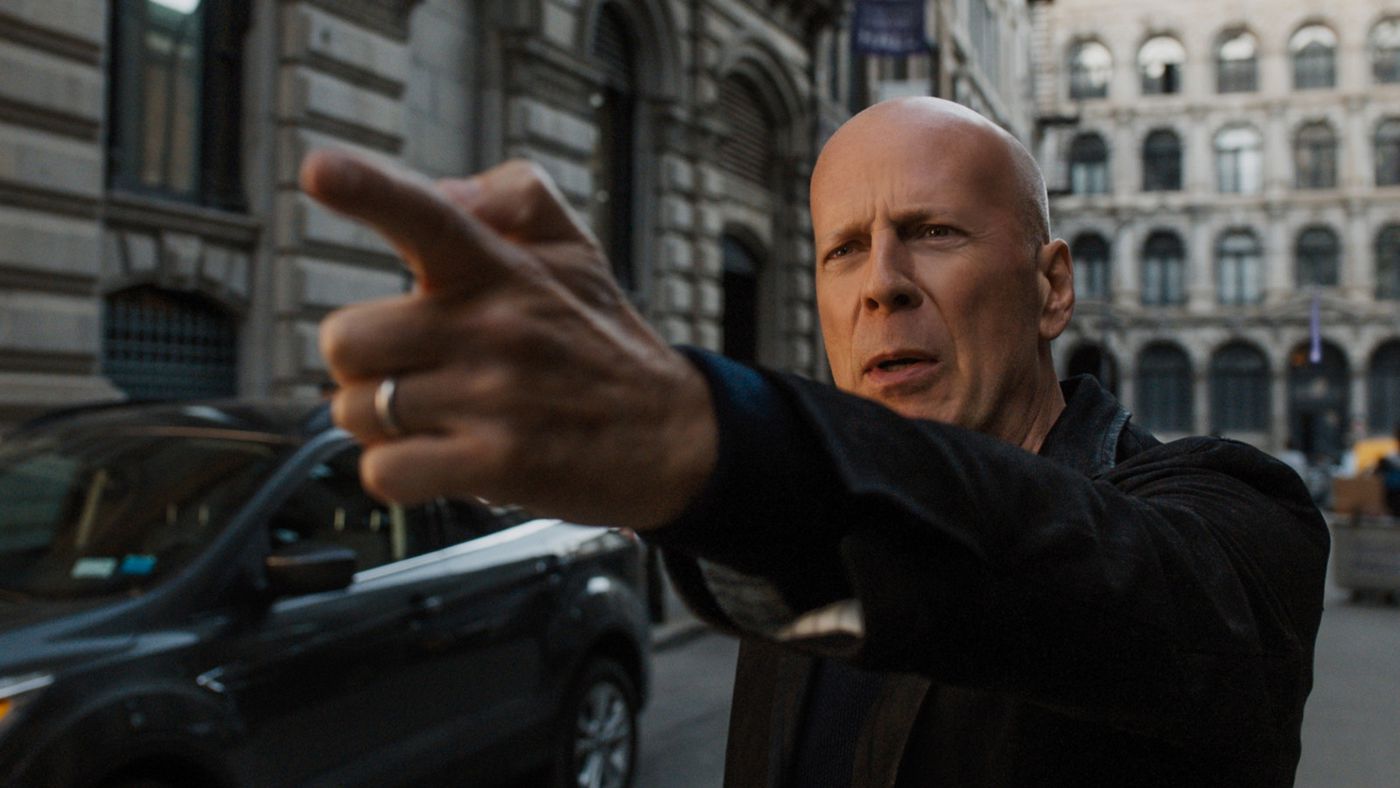In the aftermath of Donald Trump’s electoral victory there was a lot of hand-wringing in center-to-left circles about the idea that “coastal elites” are in a liberal bubble, totally oblivious to the rest of the country. At the time (and to this day) I felt that was a rather idiotic position, simply because we all live in bubbles. Some Trump supporter in Alabama has no better understanding of my coastal elite1 existence than I do of theirs, and it’s not exclusively on me to be more understanding of them, especially when their decisions are so totally screwing us over.
But.
But I have to recognize that my initial reaction to the idea of a remake of Death Wish was obscured by my own bubble. My initial reaction was, “How can these people be so tone deaf?” The premise is gross as hell to begin with, but now?
In a country so riddled with mass shootings and unarmed black kids being gunned down by police? How can you possibly think this is a thing that will go over with a wide audience? Well, that was my bubble talking, and it only took a second of thought to realize that. I felt kind of dumb. There is still a non-trivial number of Americans who think George Zimmerman was right, if not a hero, for stalking and murdering an unarmed teenager who was on his way home.
Death Wish is a film for them. It’s wish fulfillment for angry and scared people who want to see rich white folks shoot dark-skinned poor folks. To protect themselves, apparently. It’s to be expected, even as the original novel apparently2 portrayed Paul Kersey’s actions in a negative light. The Bronson films staked out a pro-vigilante position, and that’s what we’re stuck with.
So, as for the film itself. As often as I’ve disagreed with Roger Ebert’s views on film, I’ve always appreciated his general approach. A film should be judged, he’d argue, by its own aims. Does this film succeed at what it’s trying to accomplish? Does Eli Roth’s Death Wish succeed in that sense? Does it manage to be an entertaining and cathartic exercise in class and racial paranoia?
No.
It really, really doesn’t. The gross politics of the film are unsurprising, but what is kind of shocking is how bland it is. Coming from Roth I expected something at least a little bit gonzo, but, a few really brutal acts of violence aside, this film is utterly dull.
In this incarnation, Paul Kersey (Bruce Willis) is an ER surgeon in Chicago3. In the novel, Kersey was a CPA and in the Bronson films he was an architect, and I think he’s a doctor here mostly for narrative convenience. He’s at the ER when his dead wife and comatose daughter are brought in, having been robbed and shot by a crew of faceless baddies. He’s later at the ER when clues to the perpetrators literally show up under his nose. Cue the path of vengeance. It’s clumsy, but I guess it works as a shorthand for this sort of thing.

What a tool.
Joe Carnahan (Smokin’ Aces, The Grey) is the sole credited screenwriter, but he has publicly distanced himself from the film. His original version was supposedly more nuanced, and I have to wonder if Kersey being a doctor was a decision on his part.
There’s a split screen montage early on of Kersey learning how to assemble, disassemble and reload weapons, intercut with him extracting bullets from his patients.
All set to AC/DC’s “Back in Black.” It’s an interesting juxtaposition of taking lives and saving them that, combined with Kersey’s consumption of weirdo gun culture YouTube videos, gave me some hope that Roth was aiming for a Verhoeven-esque satire of America’s love for the gun-toting vigilante ideal. But, no. Those were bright and funny spots in an oddly milquetoast version of the story.
Even as the film goes out of its way to show conflicting opinions from (weirdly) radio hosts about whether what Kersey (aka “The Grim Reaper”) is doing is a good thing or not, the film definitely comes down on the side of his cold-blooded murders being a very good thing. In so many words, what any father and husband should do. His first couple of violent acts are in defense of black victims, and it feels like the movie is saying that it totally has black friends. It ends up being an unapologetic endorsement of the idea of a vigilante white savior.
For his part, Bruce Willis is being late-period Bruce Willis, sleepwalking through the role and looking more like a pruney thumb than ever before. Even in the most dramatic of scenes he seems on the verge of nodding off. His character comes off as utterly amoral, as his path into lethal violence is quick and seems to have little emotional effect on him. Vincent D’Onofrio is sorely wasted as Kersey’s ne’er-do-well brother, but even in his vaguely-written part he brings some much-needed life to the scenes he’s in. Understated for him, but enjoyable to watch.
Other than a couple of fun and grisly deaths, D’Onofrio’s performance is about the only thing I can praise here. The film is a tonal mishmash, but not in an entertaining way. Beyond some good suspense scenes early on, Eli Roth displays absolutely no sense of visual storytelling or, beyond that fun, so it can’t transcend its grotesque moral core in the same way that head-stabbing schlock like Olympus Has Fallen can.
This isn’t exactly a surprise, given the source material and the filmmaker, but Death Wish is nothing but the usual “Dad Action Movie,” but made more gross and racist and classist and immoral. And boring. When I reviewed Justice League a while back, I said it defined “Wait for Netflix.” In this case, I wouldn’t even bother with that.







